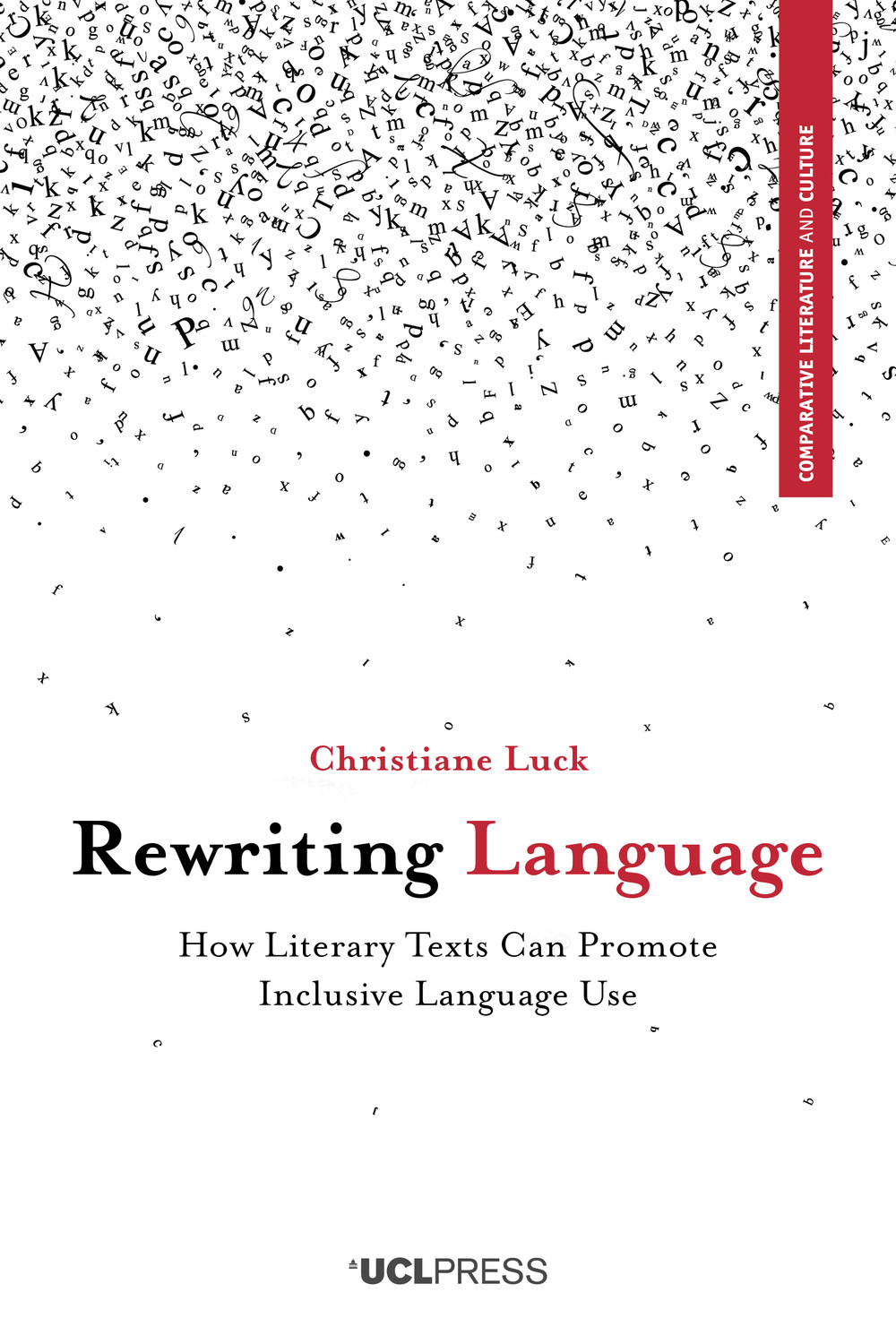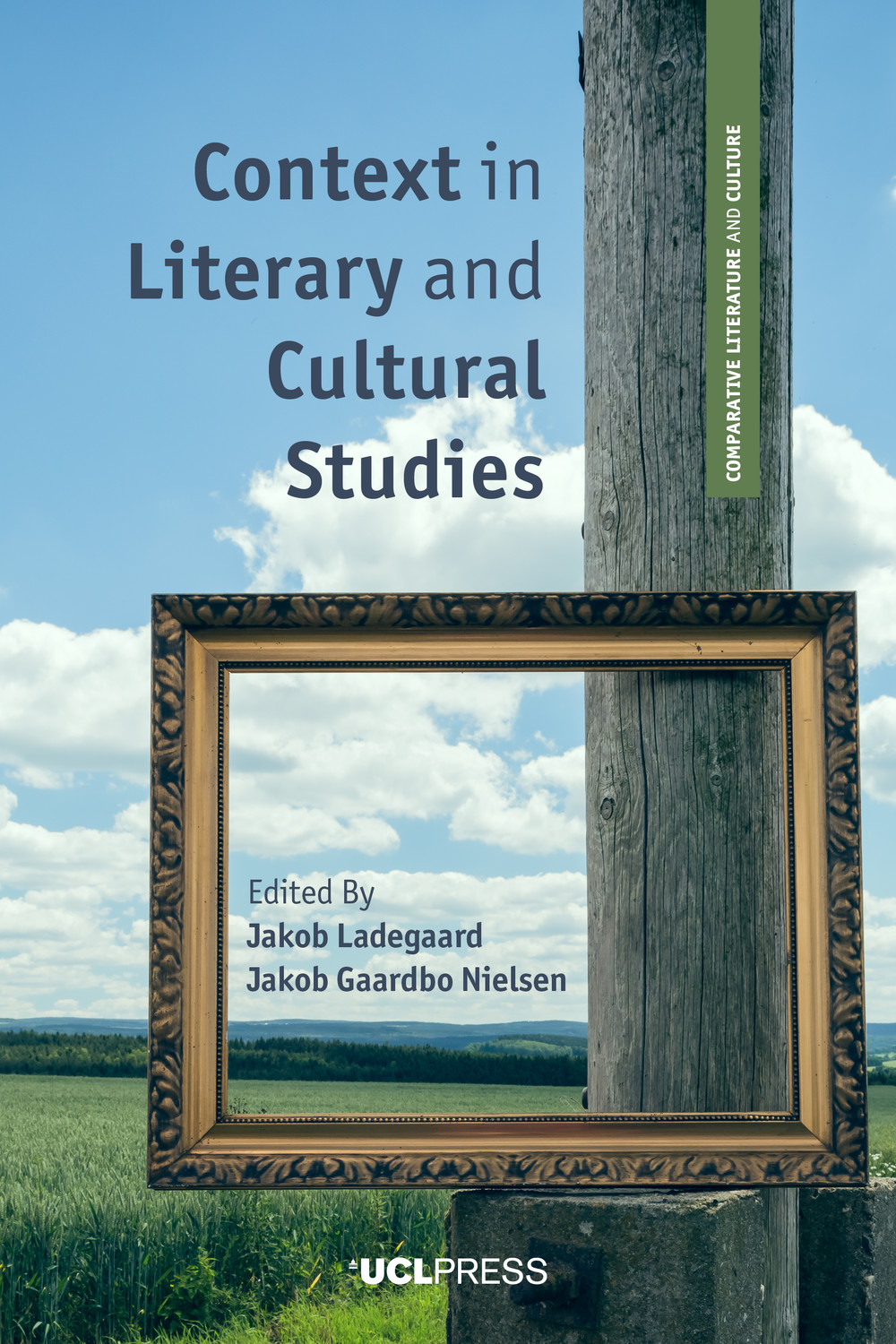Rewriting Language
How Literary Texts Can Promote Inclusive Language Use
Christiane Luck
Inclusive language remains a hot topic. Despite decades of empirical evidence and revisions of formal language use, many inclusive adaptations of English and German continue to be ignored or contested. But how to convince speakers of the importance of inclusive language? Rewriting Language provides one possible answer: by engaging readers with the issue, literary texts can help to raise awareness and thereby promote wider linguistic change.
Christiane Luck analyses
five iconic texts from a literary, linguistic and sociological perspective. She
shows how Ursula K. Le Guin’s The Left
Hand of Darkness and Verena Stefan’s Häutungen
highlight the issues inherent in the linguistic status quo; Marge Piercy’s Woman on the Edge of Time and June
Arnold’s The Cook and the Carpenter
explore the possibilities and challenges of linguistic neutrality; and Gerd
Brantenberg’s Egalias døtre reverses
linguistic norms to illustrate the link between language and imagination. A
focus group study provides empirical evidence for the effectiveness of the
literary approaches and shows how literary texts can sensitise readers to the
impact of biased language. Particularly in the context of education, Luck
concludes, literary texts can be a valuable tool to promote inclusive language
use.
Praise for Rewriting Language
'An important contribution to feminist linguistics and sets forth a model that other researchers can build on, even as she reminds us that sexist value systems are too deeply engrained to be easily displaced by more egalitarian linguistic systems.'
Gender and Language
Christiane Luck holds a PhD in Comparative Literature from UCL. She is an interdisciplinary scholar who combines literary and social research methods to investigate the impact of literature on readers’ perceptions.
Introduction
1. Linguistics and literature
2. Problematising the linguistic status quo – The Left Hand of Darkness and Häutungen
3. Proposing linguistic neutrality – The Cook and the Carpenter and Woman on the Edge of Time
4. Reversing the linguistic status quo – Egalias døtre
5. ‘It’s good to make people realise … double standards’ – Evaluating the impact of literary texts thematising sex/gender and language
Conclusions
Works Cited
Index
Gender and Language
Format: Paperback
Size: 234 × 156 mm
204 Pages
Copyright: © 2020
ISBN: 9781787356689
Publication: February 06, 2020
Series: Comparative Literature and Culture
Related products
Comparative Perspectives on the Rise of the Brazilian Novel
Comparative Perspectives on the Rise of the Brazilian Novel presents a fr...Context in Literary and Cultural Studies
Context in Literary and Cultural Studies is an interdisciplinary volume that ...Exile, Non-Belonging and Statelessness in Grangaud, Jabès, Lubin and Luca
At least since the Romantic era, poetry has often been understood as a powerf...From Shakespeare to Autofiction
From Shakespeare to Autofiction focuses on salient features of authorship thr...








